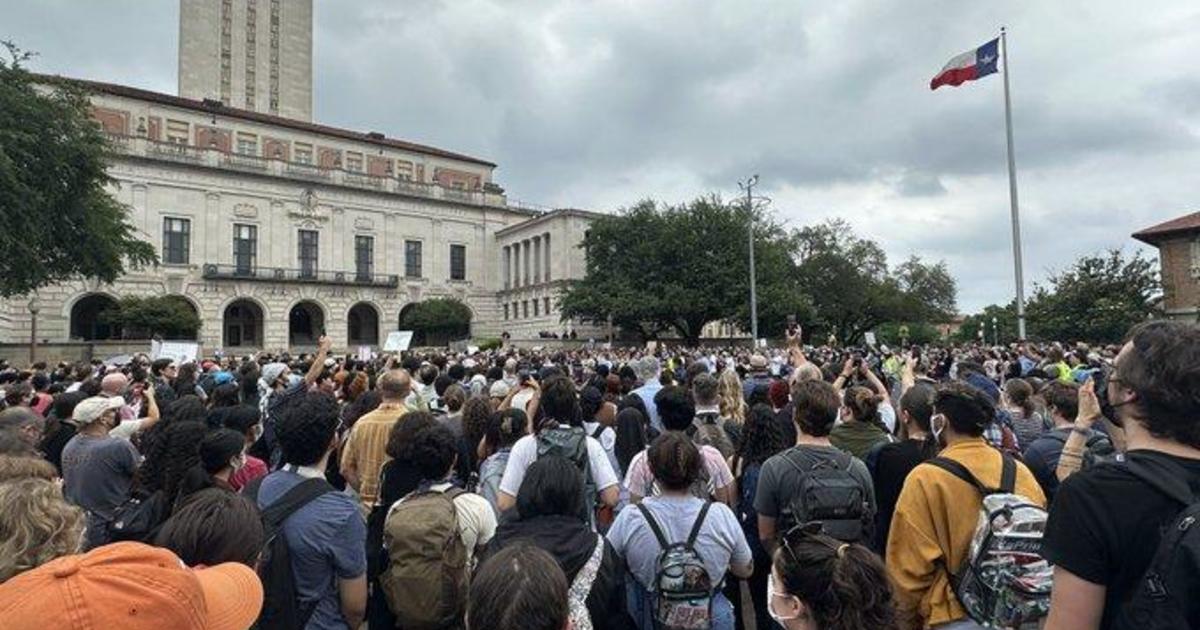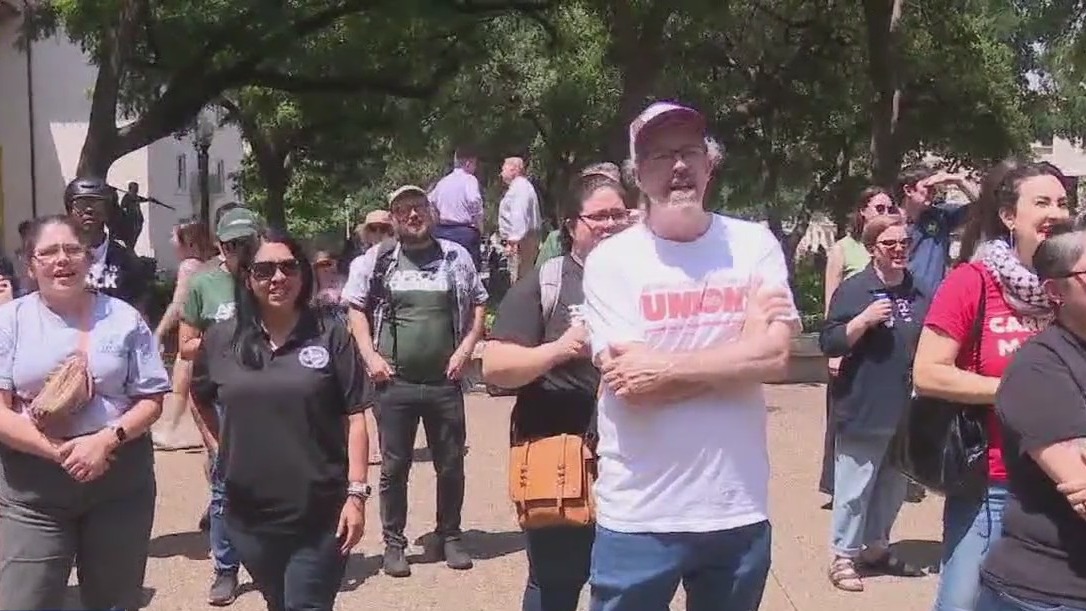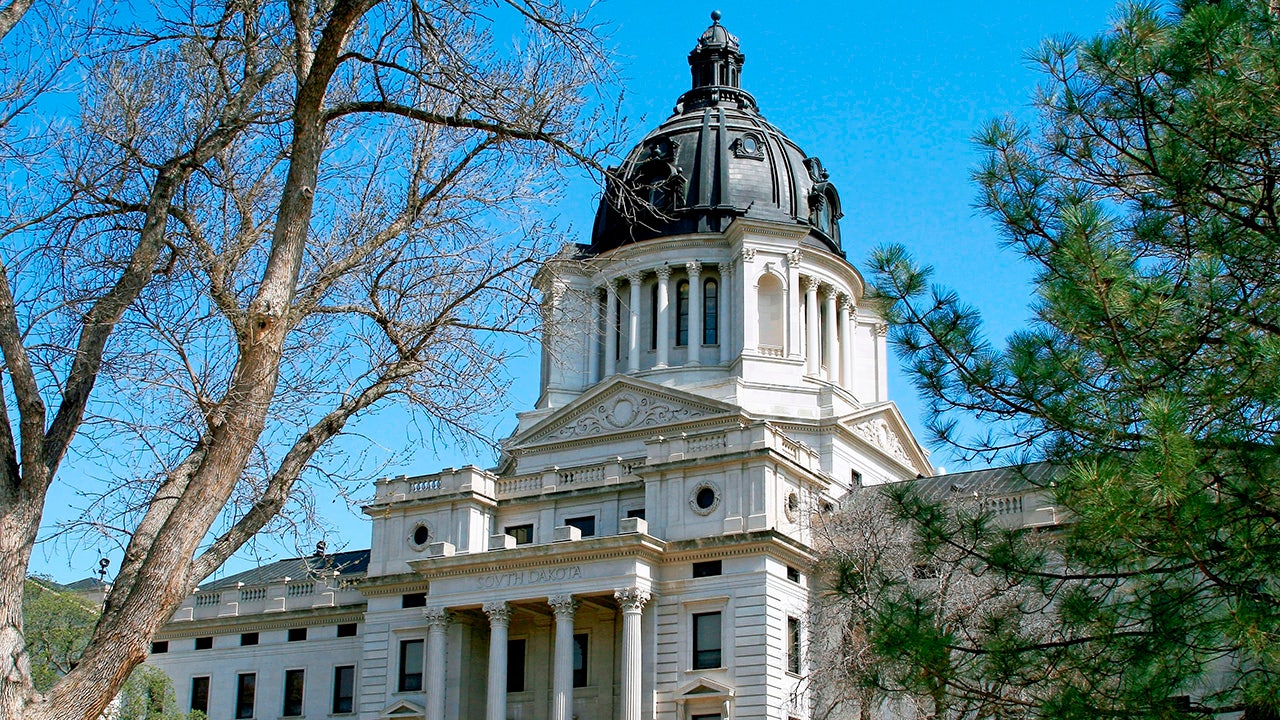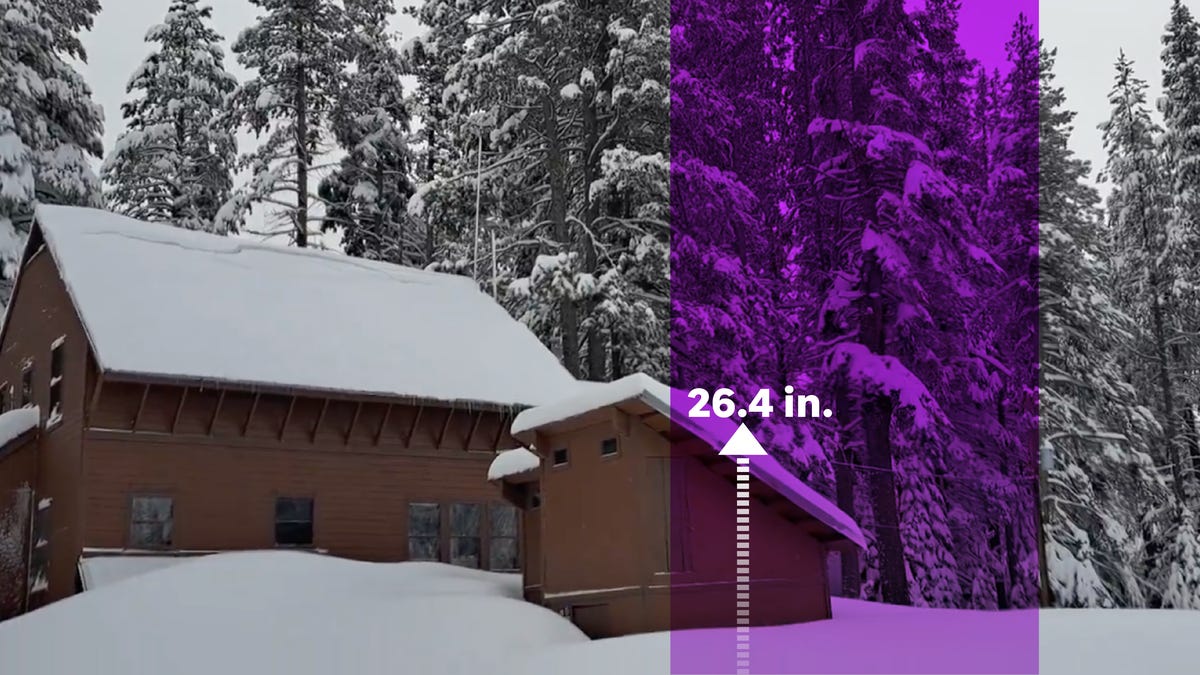Austin, TX
Pro-Palestinian protests continue at UT-Austin, organized, calmer

AUSTIN — It was another day of protests on the University of Texas-Austin campus.
Wednesday, there were many people supporting Palestine. Thursday we also saw crowds supporting Israel as they faced off on campus.
But compared to Wednesday, things were calm. Police were in place, and watching carefully, but there was never any need for them to take action.
It was very organized, with faculty and students speaking, and the crowd repeating their words.
Whenever it appeared maybe emotions were starting to get high, someone would step in and try to bring the temperature down to make sure it didn’t get out of hand.
The Palestinian Solidarity Committee planned this walkout, for the second day in a row.
Wednesday, when the university had law enforcement break it up, it was out of concern demonstrators would “take” the campus, or occupy space like we have seen in the northeas. But we did not see any effort by students to do that on Thursday.
Students said this was about showing solidarity and not wanting the university to be associated with Israel’s fight.
Jewish students though were also there, outnumbered, but felt they needed to be visible during this demonstration.
“My parents asked me to take my star off and I don’t want to do that,” aid Katarina Jakinier, a UT sophomore. “It’s scary when people are attacking who you are something so intrinsic to me and who I am and what I believe in.”
“I stand with my Arab brothers and sisters,” said Zak Kadir, a junior at UT.
The Travis County Sheriff’s Office says 57 people were arrested Wednesday. Charges have been dropped for some of those arrested. The exact number is unclear.

Austin, TX
Groundbreaking dates set for temples in Bolivia, Texas

The First Presidency of The Church of Jesus Christ of Latter-day Saints has announced groundbreaking dates for two temples — June 8 for the Santa Cruz Bolivia Temple and Aug. 17 for the Austin Texas Temple.
Of the Church’s 350 temples total worldwide that are dedicated, under construction or in planning and design, nine have concluded or are concluding construction and have been announced for dedication, with 42 more currently under construction. Two — the Teton River Idaho and Cleveland Ohio temples — are scheduled for June 1 groundbreakings.
The Church makes every effort to construct temples in an expeditious manner. At times, various reasons may delay a temple’s completion and dedication.
The two groundbreaking dates were first published Monday, May 6, on ChurchofJesusChrist.org. Attendance at the sites will be by invitation only, with additional details on the events to be released as the groundbreaking dates draw closer.
Santa Cruz Bolivia Temple
Elder Jorge F. Zeballos, a General Authority Seventy and president of the Church’s South America Northwest Area, will preside and offer a dedicatory prayer at the June 8 groundbreaking services for the Santa Cruz Bolivia Temple.
President Russell M. Nelson announced a temple for Santa Cruz during the October 2020 general conference. The site location was announced two years later, on Nov. 28, 2022.
With plans calling for a single-story building of approximately 29,000 square feet, the Santa Cruz Bolivia Temple will be built at Avenida Quinto Anilla y Santa Rosa (Av. Radial 27), Santa Cruz de la Sierra, Bolivia.
Bolivia has two other houses of the Lord — the Cochabamba Bolivia Temple, dedicated in April 2000, and the La Paz Bolivia Temple, which was announced in October 2021 and had its site made public in August 2023.

In conjunction with the groundbreaking announcement, an exterior rendering of the Santa Cruz Bolivia Temple was released Monday.
Missionaries began teaching the gospel of Jesus Christ in the Andes Mission in November 1964. Today, Bolivia is home to more than 225,000 Latter-day Saints in over 270 congregations.
Austin Texas Temple
Elder Michael A. Dunn will preside at the Aug. 17 groundbreaking ceremony and offer a dedicatory prayer. A General Authority Seventy who is currently second counselor in the North America Southwest Area presidency, Elder Dunn will serve as first counselor in the presidency beginning Aug. 1.

President Nelson announced a temple for Austin during April 2022 general conference, one of 17 locations he announced on April 3, 2022, bringing to 100 the number of temples he had announced since becoming President of the Church in 2018. Through April 2024 general conference, he has announced 168 temples.
First published in September 2023, the exterior rendering of the Austin Texas Temple visually represents that house of the Lord according to initial details as announced when its site location was released in December 2022.
The house of the Lord is to be built on a 10.6-acre site adjacent to an existing meetinghouse at 1801 E. Park St., Cedar Park, Texas. It is planned as a single-story temple of approximately 30,000 square feet. Cedar Park is a suburb northwest of Austin.

The Austin temple is one of nine in Texas. Operating temples are located in Dallas, Houston, Lubbock, McAllen and San Antonio, with one in Fort Worth under construction. The Austin temple is one of three in planning stages, along with others in McKinney and south Houston.
Missionaries first visited Texas in 1843. In 1898, about 300 Church members settled on land purchased by the Church in northeast Texas that would become the colony of Kelsey, about 110 miles east of Dallas.
Church membership in Texas has grown rapidly in recent decades — from 132,000 Latter-day Saints in 1985 to just over 210,000 in 2000. Today more than 385,000 members of the Church comprise the 750-plus congregations in the state.
Austin, TX
New Boba Cucue Franchise Locations Coming Soon to Austin, Texas | RestaurantNews.com

The boba-centric brand will soon bring two new stores to Texas thanks to an agreement signed this month.
 Austin, TX (RestaurantNews.com) Fast casual boba brand Boba Cucue, known for its fantasy-like atmosphere, cute custom merch, fresh fruit cold brew teas, sweet treats, and more, will soon be available in Austin, Texas thanks to a multi-unit franchise agreement signed this month by a new group of franchise partners.
Austin, TX (RestaurantNews.com) Fast casual boba brand Boba Cucue, known for its fantasy-like atmosphere, cute custom merch, fresh fruit cold brew teas, sweet treats, and more, will soon be available in Austin, Texas thanks to a multi-unit franchise agreement signed this month by a new group of franchise partners.
The deal comes on the heels of a second franchise location added to the Las Vegas area in February, bringing the total to nearly 20 locations for the brand. Cottonwood, Tucson, and Marana, Arizona, as well as Birmingham, Alabama also have had new locations added in recent months.
“Our momentum is evident as we have seen interest build consistently over the course of the past year,” stated co-owner Gary Lo, who owns the fast-casual boba cafe with Vivien Chung. “This group of franchise partners is a great group of people to represent Boba Cucue and to bring our brand to Texas for the first time.”
Boba Cucue is a standout in the boba tea franchise space thanks to its eye-catching branding, Instagrammable-menu items, and custom-created gifts and goodies. The company has worked to create an ambiance unlike anything in the market today.
“When our customers walk in, we want them to have an unforgettable experience, no matter their age or how many times they have been in before,” stated Lo. “We’ve worked hard on the overall feel of each store, with special attention to the details that make us different.”
Boba Cucue is continuing to vet potential franchisees. Franchise buyers will find a complete training program, ongoing support, all recipes, branding elements, and marketing guidance. Learn more about Boba Cucue at www.BobaCutea.com or BobaCuteaFranchise.com.

About Boba Cucue
Boba Cucue is a unique, modern boba tea house that is a dreamland of tasty drinks, mouth- watering snacks, and ridiculously cute Boba Cucue gadgets and merchandise. The brand carries fresh fruit cold-brew teas, 2-in-1 ice cream boba frappes, and galaxy boba drinks, which are all hand-crafted with high-quality ingredients, chewy boba pearls, and fresh fruit or milk, as well as Japanese homemade waffle pop and fresh steamed Dim Sum. Franchise opportunities are now available nationwide. Help spread the joy with Boba Cucue — visit BobaCuteaFranchise.com to learn more.
Media Contact:
Boba Cucue
Devin.bobacutea@gmail.com
Austin, TX
Texas DEI shutdown: UT Austin faculty members push back

UT faculty pushes back against DEI purge
Since January, when SB 17 took effect, colleges across Texas have shut down diversity, equity and inclusion programs. FOX 7’s Rudy Koski spoke to UT faculty about why they believe DEI should remain.
AUSTIN, Texas – In this edition of Texas: The Issue Is, the issue is the DEI purge pushback.
Since January, when SB 17 took effect, college administrators all across Texas have been shutting down diversity, equity and inclusion programs.
In response to that, members of a faculty labor union rallied at the University of Texas here in Austin, calling on school leaders to stop the rollback.
FOX 7 Austin’s Rudy Koski spoke to two members about why they believe some form of DEI should remain on every campus.
Lawmakers speak out on UT’s DEI division
Some state and city leaders are fighting against the University of Texas’s decision to terminate at least 66 employees. They want the university to reconsider its terminations.
PAULINE STRONG: I would like the university to restore the programs that were lost. I believe they were lost to please political forces in the state.
KARMA CHAVEZ: I never understood what people were saying about what was wrong with it, because all we’re trying to do is make a better campus for more students.
RUDY KOSKI: There are some programs that are viewed to be divisive, where we start breaking people up into compartments. You’re in this tribe, you’re in this tribe, you’re in this tribe. Do you feel that we can move away from that?
KARMA CHAVEZ: Well, it’s not a either or. So, there’s got to be space for people who come from marginalized backgrounds to have their own space to represent their cultures, to just feel comfortable. A campus like this, it can be really hard if you’re a student of color, for example. And so it’s nice to have spaces that are meant for you.
UT Austin shuts down DEI division
The president of UT Austin announced a major staffing shake-up as a result of a new state law banning “diversity, equity and inclusion” programs on campus. FOX 7 Austin also learned employees will be losing their jobs.
RUDY KOSKI: DEI has become a four-letter word. Can the concept be rebooted and do you think it could be less divisive?
PAULINE STRONG: We are a diverse group of people, so diversity is already here. Equity and inclusion are not. We need to keep working at equity and inclusion, and we need to acknowledge how many different kinds of people we have in Texas, how many different kinds of students we have. And we need to work to support each other. And we need staff who help us do that as well.
RUDY KOSKI: There are people who will say, Texas already is doing that. We recognize we’re diverse, and we recognize people should be treated fairly. Why do we need DEI?
PAULINE STRONG: I don’t see that happening outside of DEI. I see the purge of staff who had decades of experience, many of them, working with students to help them succeed. I think that purge shows that we’re not doing what we need to be doing.
RUDY KOSKI: But at the expense of another race, because that was the argument against DEI was that we’re lifting up one group, pushing down another.
PAULINE STRONG: I don’t think anything about DEI pushes down another group. It is lifting up people who have been marginalized, people whose parents and grandparents did not have the chance to go to college. It is uplifting us all.
MORE COVERAGE
RUDY KOSKI: Don’t we already have these protections in place? Affirmative action, discrimination laws?
KARMA CHAVEZ: I mean, well, we don’t really have affirmative action anymore. That’s pretty much been thrown out the window. You know, discrimination is about a very kind of particular legal definition. And it doesn’t get at, for example, microaggressions and the kind of little things that happen to students on the day to day, that make being on a campus like this really hard, and all DEI was, was a Band-Aid to try to make life a little bit better for folks.
RUDY KOSKI: So how do we reboot this? How do we come together, especially during these times?
KARMA CHAVEZ: Yeah. I mean, I think we need people to come together in earnestness. So not, just to prove that my point is right, for you to prove that your point is right, but really, to hear each other.
-

 News1 week ago
News1 week agoBoth sides prepare as Florida's six-week abortion ban is set to take effect Wednesday
-

 Politics1 week ago
Politics1 week agoColumbia University’s policy-making senate votes for resolution calling to investigate school’s leadership
-

 Politics1 week ago
Politics1 week agoGOP Rep. Bill Posey won't seek re-election, endorses former Florida Senate President as replacement
-

 World1 week ago
World1 week agoBrussels, my love? MEPs check out of Strasbourg after 5 eventful years
-

 World1 week ago
World1 week agoRussian forces gained partial control of Donetsk's Ocheretyne town
-

 Politics1 week ago
Politics1 week agoHouse Republicans brace for spring legislative sprint with one less GOP vote
-

 World1 week ago
World1 week agoAt least four dead in US after dozens of tornadoes rip through Oklahoma
-

 Politics1 week ago
Politics1 week agoAnti-Trump DA's no-show at debate leaves challenger facing off against empty podium







/cdn.vox-cdn.com/uploads/chorus_asset/file/25436323/Super_Famicom_prototype.jpeg)











